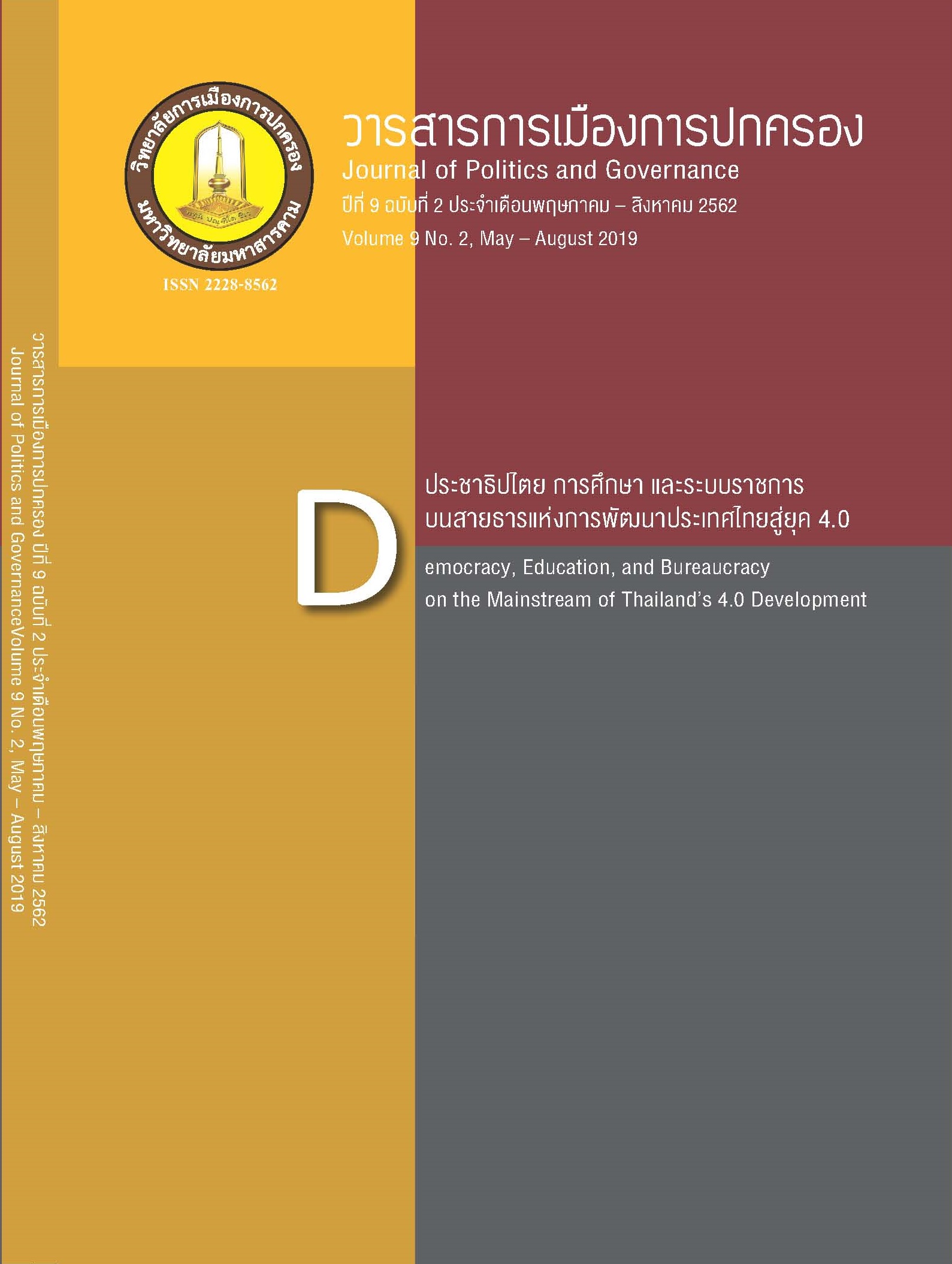Strategic Management: Challenges and Recommendations for Human Resources Management in Public Organizations
Main Article Content
Abstract
There are four main objectives projected in this article which are: 1) to study the evolution of Human Resources in Public Organizations in the U.S. and Thailand; 2) to exhibit ideas and analyze the prominent, weak, and limited points of implementing strategic management through a Western-based approach compared with the current tools that the Thai government employs; 3) to review and critically analyze motivation theories in order to effectively implement the positive aspects, which will achieve the goals of human resources management in public organizations, and 4) to present and discuss the six issues to which agencies must be alert. The knowledge gathered in the paper results from the integration of Psychology, New Public Management, Managerialism, and Human Resources Management. This interdisciplinary approach leads to the conclusion that the government sector should be reformed intensively. Moreover, it reflects that the best practice methods from Western-based philosophy may not be wholly applicable in Thailand’s public context. The government, coalitions, and stakeholders shall monitor the role of their public servants, while initiating the strategic management path which is qualified for the background. Likewise, the best fit or contingent method is preferred as the strategy. Accordingly, pragmatism is the means for reaching desirable outcomes. This also implies that for the reader there is no single best way to manage the people, thus we should combine or adapt what we have in a suitable manner.
Article Details
References
Belasen, A.T. (2000). Leading the Learning Organization: Communication andCompetencies for Managing Change. New York: State University of NY.
Carol, C. C. (1997). The Principles of Scientific Management by Frederick W. Taylor: the private printing. Journal of Management History, 3(1), 18 – 30.
Getha-Taylor, H. (2010). Human Relations 2.0: Envisioning the Organization of the Future. Public Administration Review, 70(S1); 170-172.
Gulick, Luther. (1937). Notes on the Theory of Organization. In Gulick, Luther; Urwick, Lyndall. Papers on the Science of Administration. New York: Institute of Public Administration
Henry, N. (2007). Public administration and public affairs. ed 11th. New York: Pearson/ Longman.
Herzberg, F. (1968). One more time: How do you motivate employees?. Harvard Business Review, 40(1), 53-62.
Lunenburg, F. C. (2011). Expectancy Theory of Motivation : Motivating by Altering Expectations. International Journal of Management, Business and Administration. 15 (1), 1 – 6.
McClelland, D. C. (1976). The achieving society. New York, NY: Irvington Publishers.
McGregor, D. (1960). The Human Side of Enterprise. New York: McGraw-Hill.
Olson, R., Verley, J., Santos, L., and Salas, C. (2004). What We Teach Students About the Hawthorne Studies: A Review of Content Within a Sample of Introductory I-O and OB Textbooks. The Industrial-Organizational Psychologist, 41(3), 23 – 39.
Quacquarelli Symonds. (2018). QS World University Rankings® 2017/18. Retrieved 5 April 2016 from http://www.topuniversities.com/university-rankings/ world-university rankings/2018
Rosenbloom, D. H. (1993). Editorial: Have an administrative Rx? Don’t forget the politics!. Public Administration Review, 53, 503-507.
Skinner, B.F. (1969). Contingencies of reinforcement: A theoretical analysis. New York: Appleton-Century-Crofts.
Tay, L., & Diener, E. (2011). Needs and subjective well-being around the world. Journal of Personality and Social Psychology, 101(2), 354.
Vroom, V. H. (1964). Work and Motivation. New York: McGraw Hill.
Werther, W. B. & Davis, K. (1993). Human Resources and Personnel Management. 4thEd. New York: McGraw-Hill


